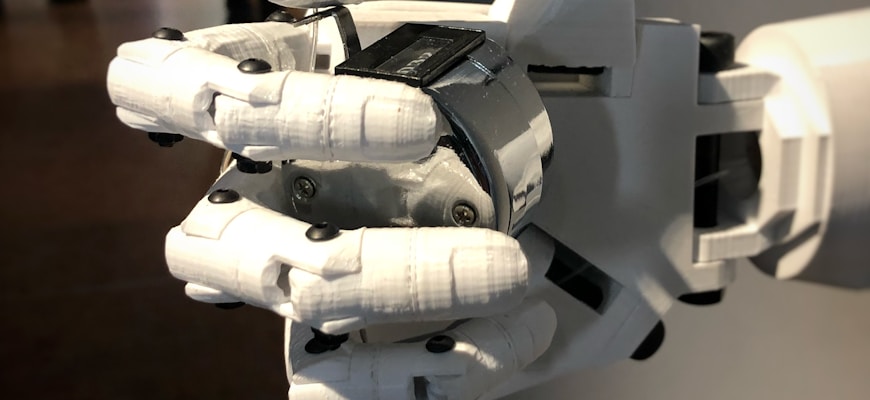The Rise of Autonomous Smart Contracts

- Understanding Smart Contracts and their Evolution
- The Benefits of Implementing Autonomous Smart Contracts
- Challenges and Risks of Autonomous Smart Contracts
- Regulatory Implications of the Rise of Smart Contracts
- Industry Applications and Adoption of Smart Contracts
- Future Trends in Autonomous Smart Contract Technology
Understanding Smart Contracts and their Evolution
Smart contracts are self-executing contracts where the terms of the agreement are directly written into lines of code. These contracts run on a blockchain network, ensuring transparency, security, and efficiency in executing transactions. The evolution of smart contracts has been remarkable, with advancements in technology enabling more complex and versatile contracts to be created.
Initially, smart contracts were simple agreements that could only execute basic functions like sending and receiving funds. However, as blockchain technology has progressed, smart contracts have evolved to include a wide range of functionalities. Today, smart contracts can facilitate a variety of transactions, including voting, supply chain management, and decentralized finance.
The evolution of smart contracts has also seen the rise of autonomous smart contracts, which are self-sustaining contracts that can operate without human intervention. These contracts are designed to automatically execute based on predefined conditions, making them ideal for use cases where trust and efficiency are crucial.
Overall, understanding the evolution of smart contracts is essential for anyone looking to leverage the benefits of this groundbreaking technology. By staying informed about the latest advancements in smart contract development, individuals and businesses can take full advantage of the efficiency and security that these contracts offer.
The Benefits of Implementing Autonomous Smart Contracts
Implementing autonomous smart contracts offers a wide range of benefits for businesses and individuals alike. One of the key advantages is the increased efficiency that comes with automating contract execution. By removing the need for manual intervention, smart contracts can streamline processes, reduce errors, and speed up transactions.
Another benefit of autonomous smart contracts is the enhanced security they provide. Built on blockchain technology, smart contracts are tamper-proof and transparent, making them resistant to fraud and hacking. This level of security can help build trust among parties involved in a contract, leading to smoother transactions and fewer disputes.
Furthermore, autonomous smart contracts can help reduce costs by eliminating the need for intermediaries such as lawyers or brokers. This not only saves money but also speeds up the contract negotiation and execution process. By cutting out middlemen, smart contracts can also reduce the risk of human error and bias.
In addition to efficiency, security, and cost savings, autonomous smart contracts offer greater flexibility and scalability. They can be easily customized to suit a variety of needs and can be deployed on a global scale without the need for manual intervention. This level of flexibility makes smart contracts ideal for a wide range of industries and use cases.
Challenges and Risks of Autonomous Smart Contracts
When it comes to autonomous smart contracts, there are several challenges and risks that need to be considered. One of the main challenges is the potential for bugs or vulnerabilities in the code that could be exploited by malicious actors. These bugs could lead to unintended consequences or even financial loss for the parties involved. Additionally, the lack of human oversight in autonomous smart contracts can make it difficult to resolve disputes or errors that may arise.
Another risk associated with autonomous smart contracts is the potential for regulatory scrutiny. As these contracts operate without human intervention, there are concerns about how they will be regulated and whether they comply with existing laws and regulations. This uncertainty can create legal challenges for businesses looking to implement autonomous smart contracts.
Furthermore, the use of blockchain technology in autonomous smart contracts introduces the risk of data breaches or hacks. Since blockchain is a decentralized and transparent ledger, any vulnerabilities in the system could compromise the security of the contracts and the information contained within them. This risk is heightened by the fact that once a smart contract is deployed on the blockchain, it is immutable and cannot be easily changed.
Regulatory Implications of the Rise of Smart Contracts
As smart contracts become more prevalent in the digital landscape, there are various regulatory implications that need to be addressed. These implications stem from the fact that smart contracts operate autonomously and without the need for intermediaries, which can create challenges in terms of legal oversight and enforcement.
One of the key regulatory concerns surrounding smart contracts is the issue of legal enforceability. Because smart contracts are self-executing and do not require human intervention, questions arise about how traditional legal frameworks can be applied to ensure that these contracts are upheld in a court of law. Additionally, the decentralized nature of smart contracts can make it difficult to determine who is liable in the event of a dispute.
Another regulatory implication of smart contracts is the potential for regulatory arbitrage. With smart contracts operating across borders and outside the jurisdiction of any single regulatory body, there is a risk that bad actors could take advantage of regulatory loopholes to engage in illicit activities. This raises concerns about how regulators can effectively monitor and regulate smart contract transactions to prevent abuse.
Overall, the rise of smart contracts presents a new set of challenges for regulators seeking to ensure the integrity and security of digital transactions. As the technology continues to evolve, it will be essential for regulators to work closely with industry stakeholders to develop new regulatory frameworks that can effectively govern the use of smart contracts in a way that protects both consumers and businesses alike.
Industry Applications and Adoption of Smart Contracts
Smart contracts are gaining traction across various industries due to their ability to automate processes and reduce the need for intermediaries. One industry that has seen significant adoption of smart contracts is the financial sector. Banks and financial institutions are using smart contracts to streamline operations such as loan approvals, asset transfers, and compliance checks. The use of smart contracts in finance has led to increased efficiency, reduced costs, and improved transparency in transactions.
Another industry that is embracing smart contracts is supply chain management. Companies are using smart contracts to track the movement of goods, automate payments, and ensure compliance with regulations. This has helped companies reduce errors, improve traceability, and enhance trust among stakeholders. The use of smart contracts in supply chain management is expected to continue growing as companies seek to optimize their operations and enhance their competitiveness.
In addition to finance and supply chain management, smart contracts are also being adopted in the real estate industry. Real estate transactions involve multiple parties, complex contracts, and extensive paperwork. Smart contracts can simplify the process by automating tasks such as property transfers, rental agreements, and escrow services. This not only saves time and reduces costs but also minimizes the risk of fraud and disputes. As a result, more real estate companies are turning to smart contracts to streamline their operations and provide a better experience for their clients.
Overall, the adoption of smart contracts across industries is driven by the desire for increased efficiency, cost savings, and transparency in business operations. As more companies realize the benefits of smart contracts, their use is expected to become more widespread in the coming years. By leveraging the power of blockchain technology, businesses can revolutionize how contracts are created, executed, and enforced, paving the way for a more autonomous and secure future.
Future Trends in Autonomous Smart Contract Technology
As technology continues to evolve, the future trends in autonomous smart contract technology are becoming more apparent. One of the key trends is the integration of artificial intelligence (AI) into smart contracts. AI can help improve the efficiency and accuracy of smart contracts by automating decision-making processes and reducing the need for human intervention.
Another trend is the use of blockchain technology to enhance the security and transparency of smart contracts. Blockchain provides a decentralized and tamper-proof ledger that can be used to store and verify contract data, making smart contracts more reliable and secure.
Additionally, there is a growing interest in the development of self-executing smart contracts that can automatically trigger actions based on predefined conditions. This automation can help streamline business processes and reduce the risk of errors or fraud.




